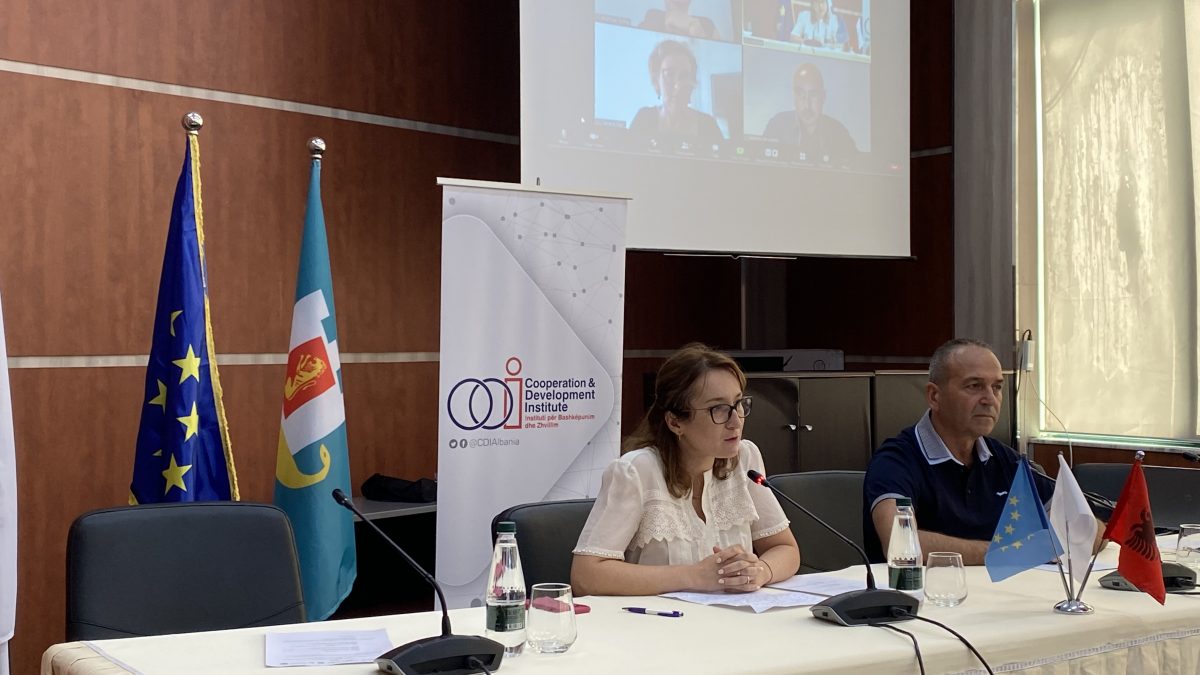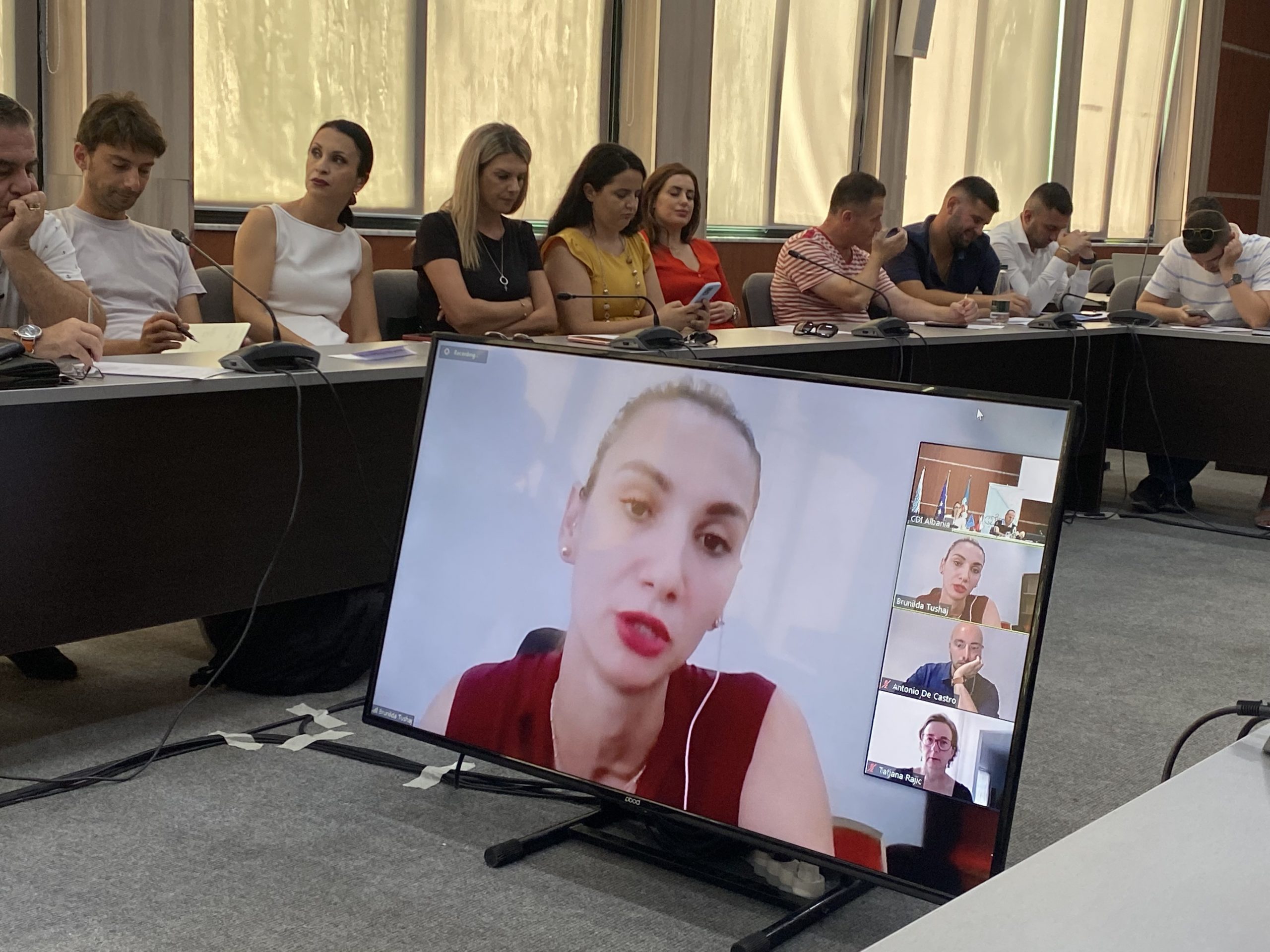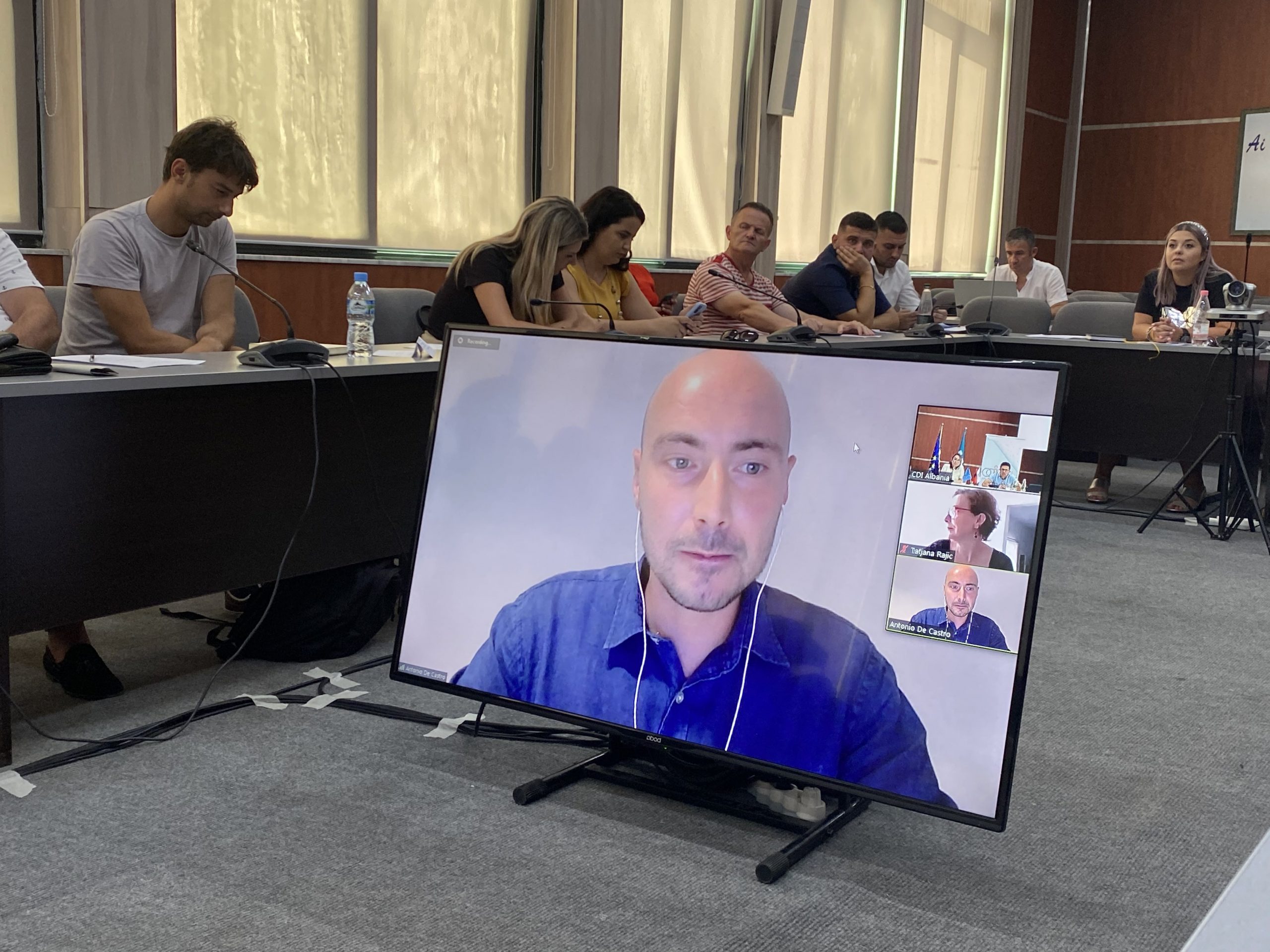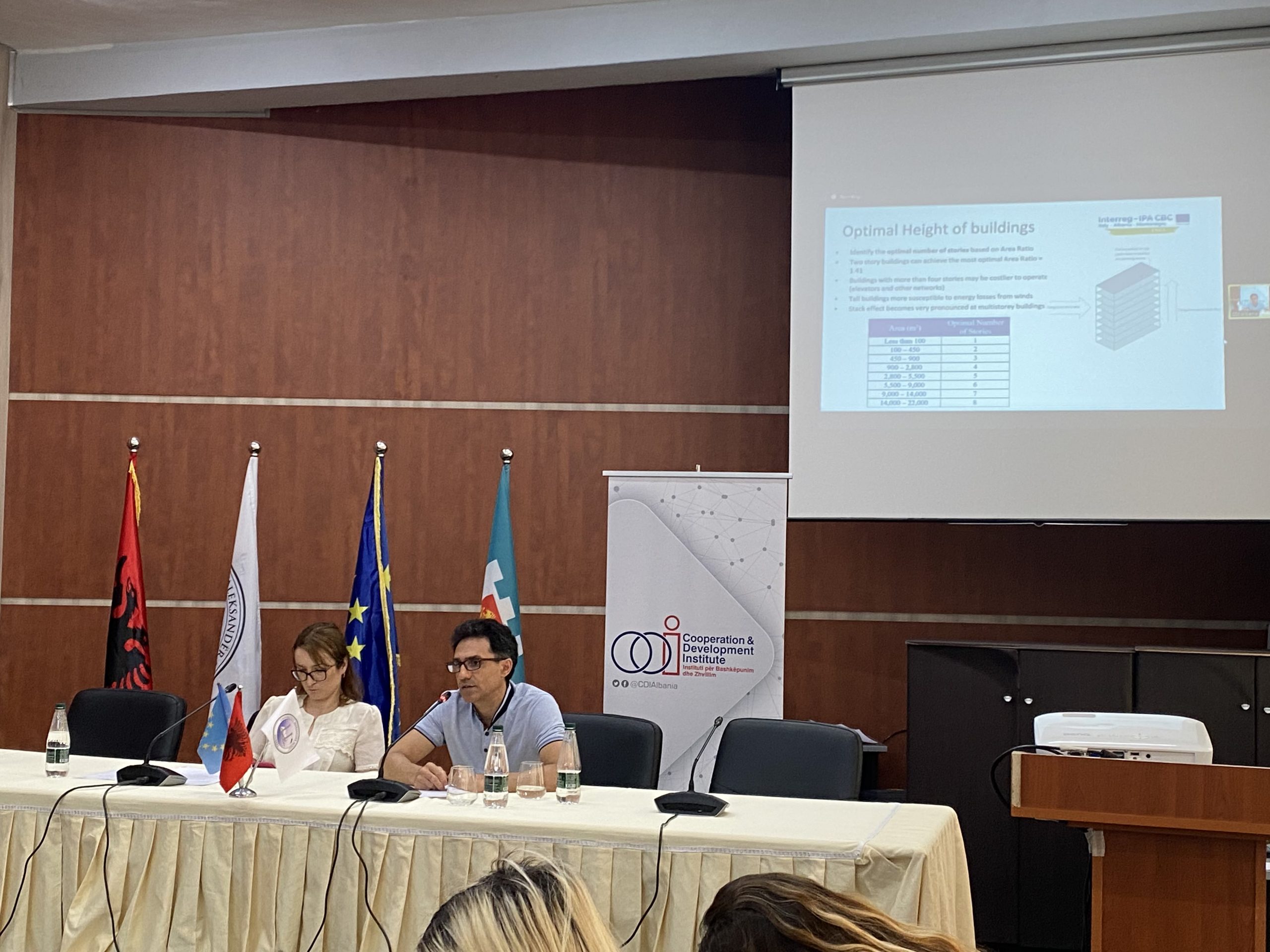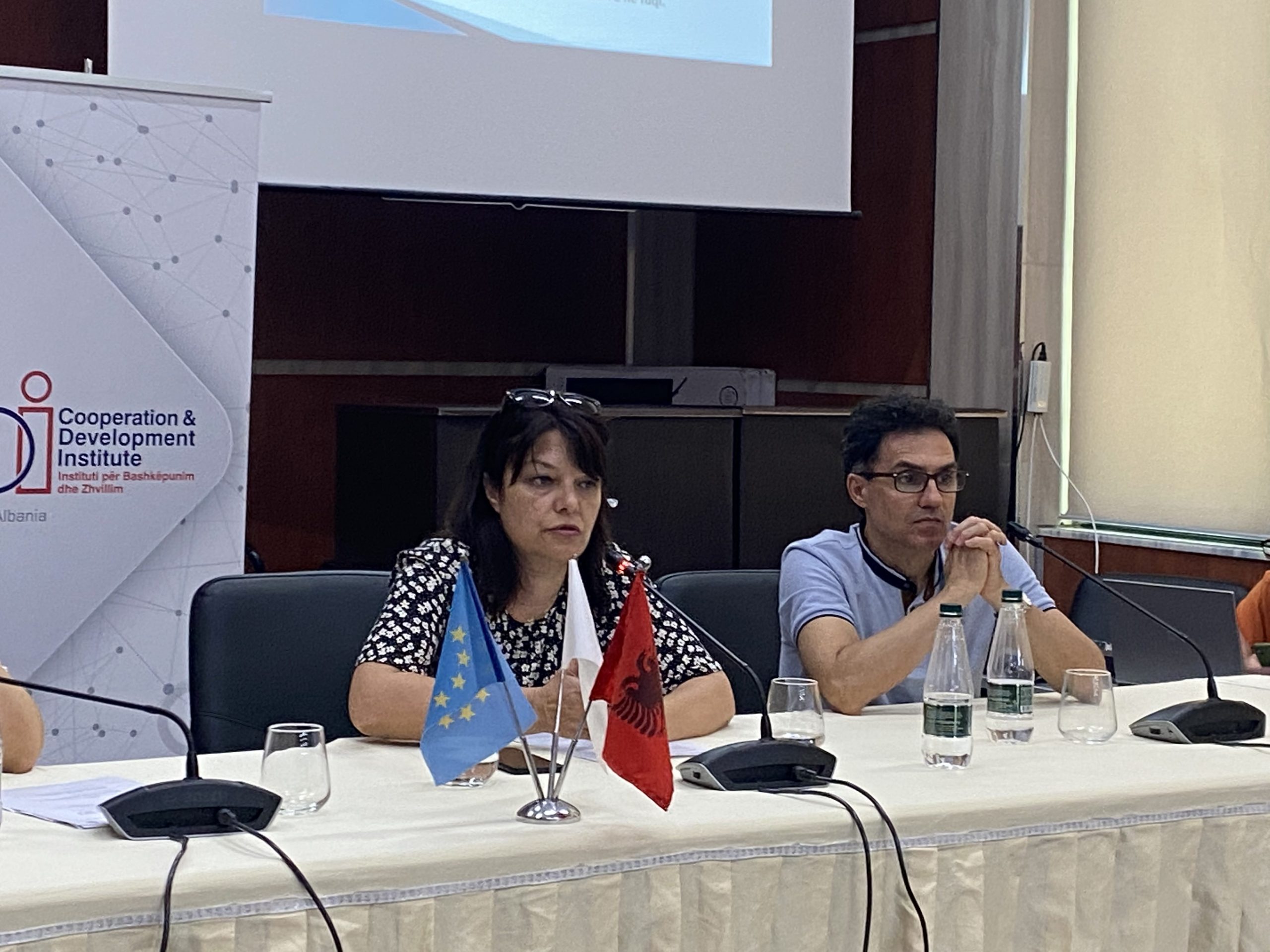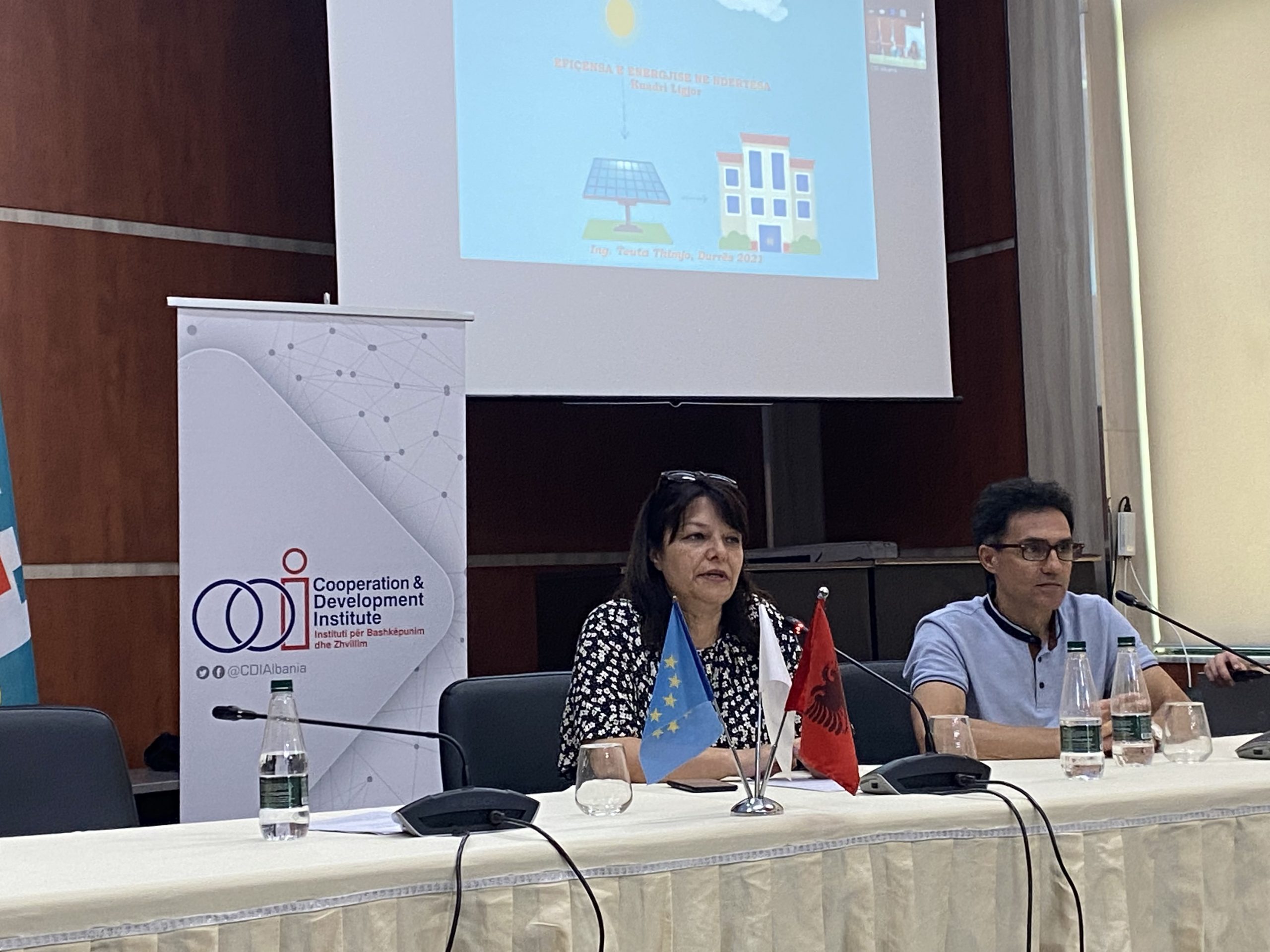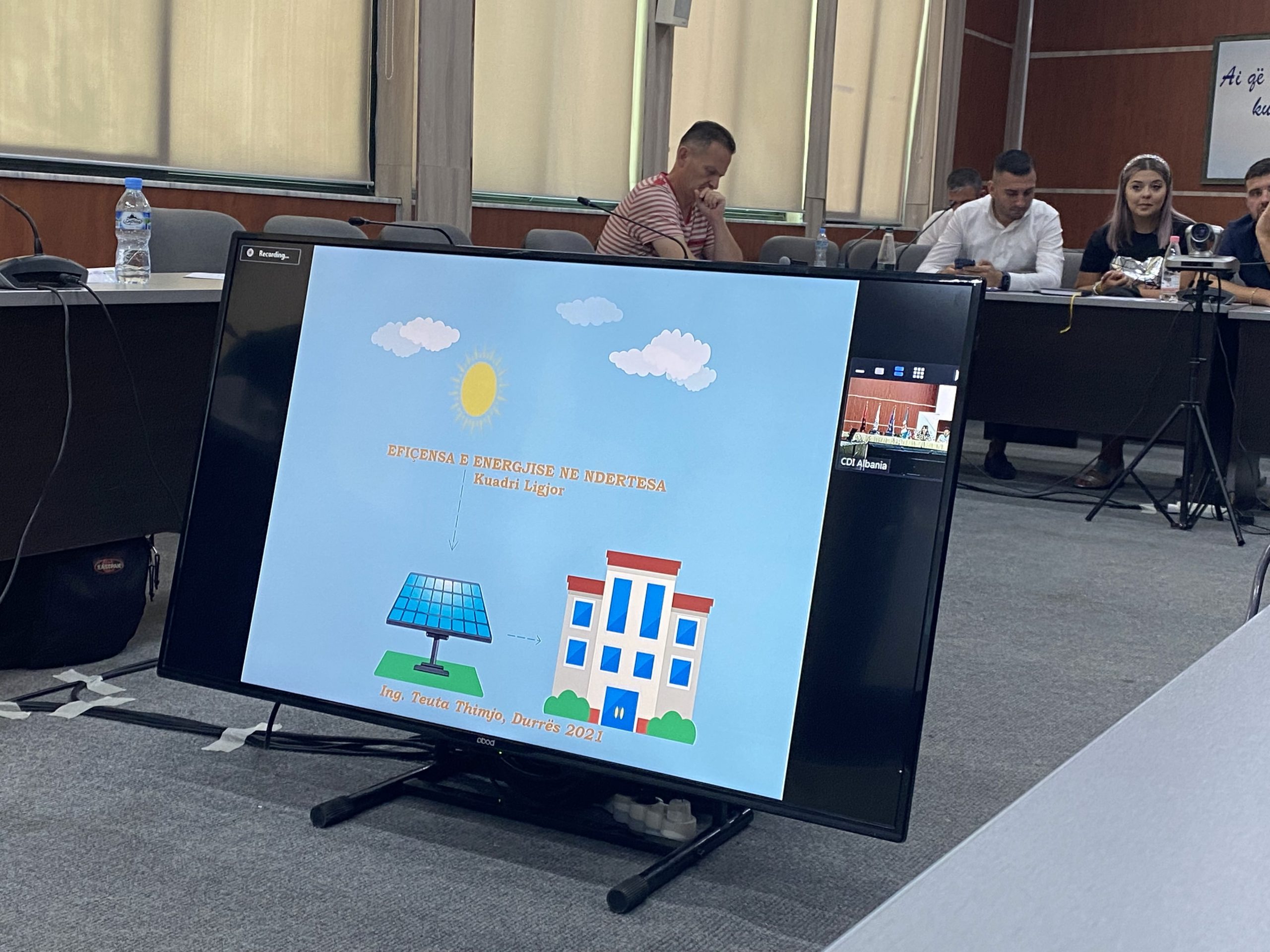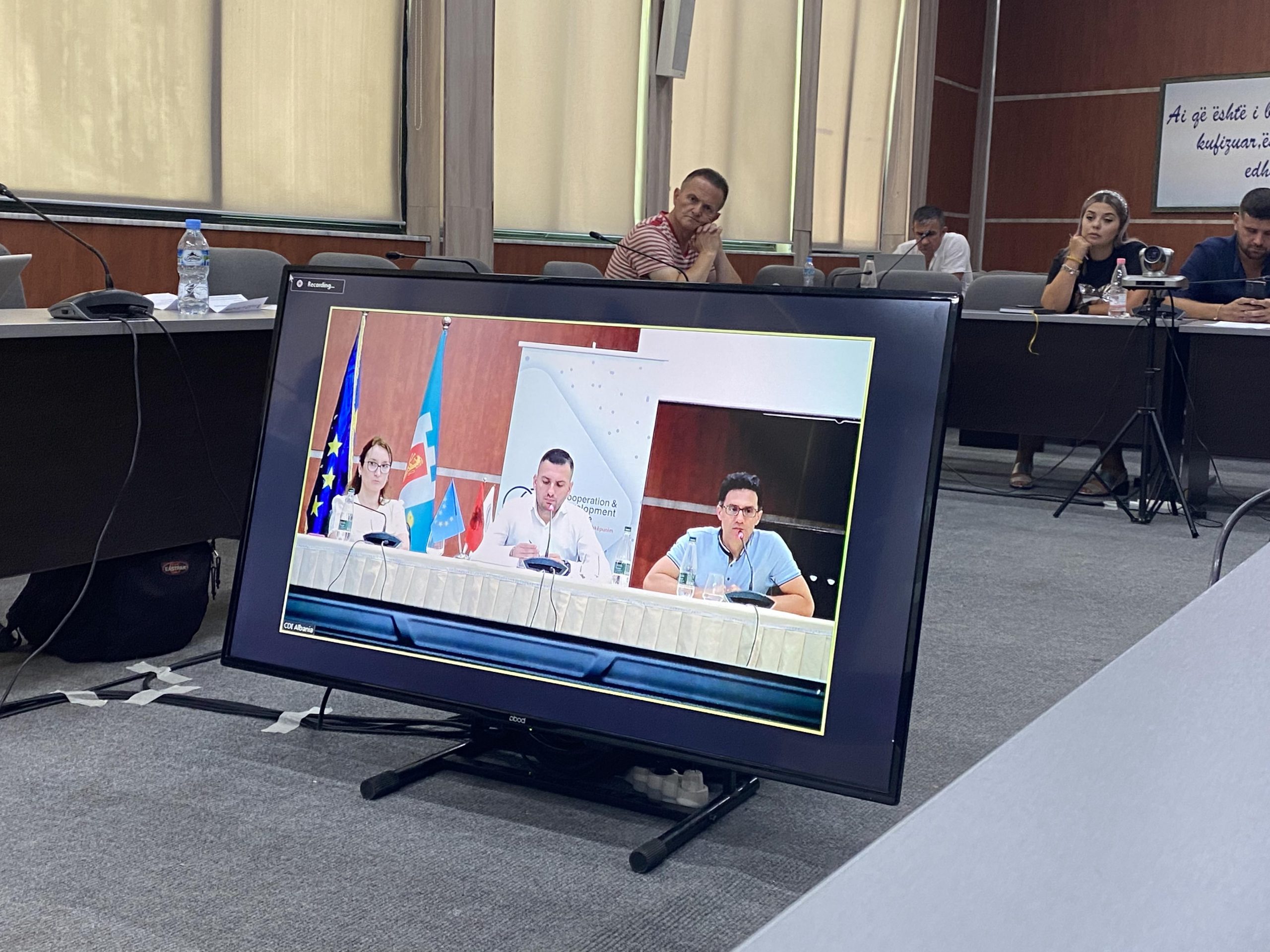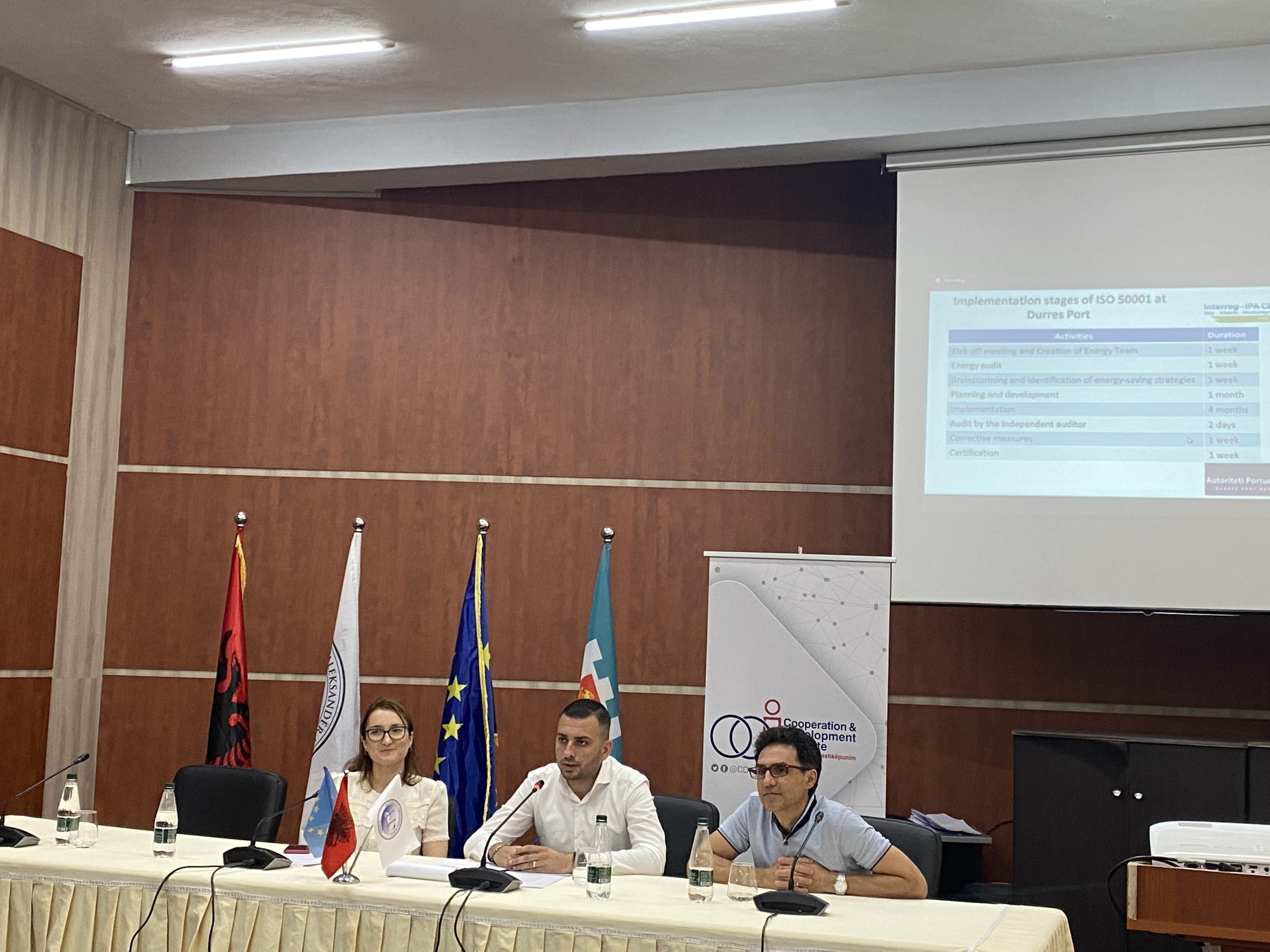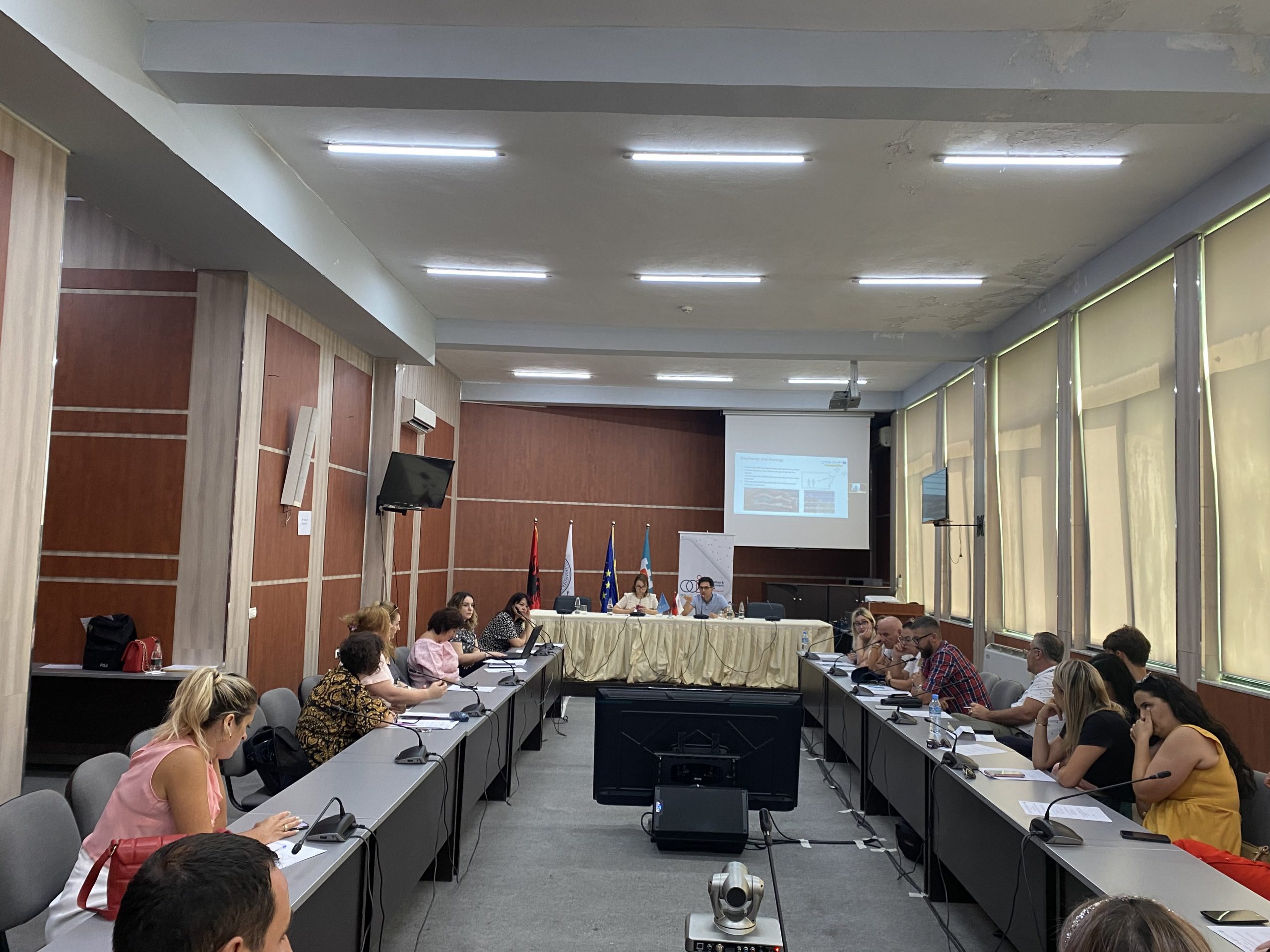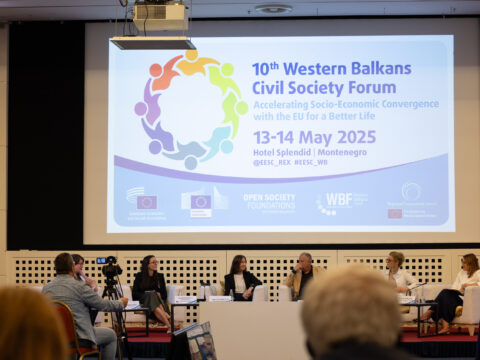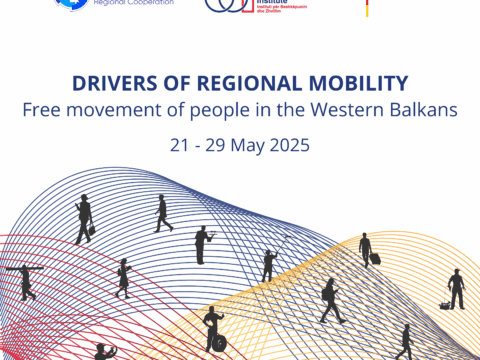14 July 2021
On July 14, 2021 Cooperation Development Institute (CDI) organized the workshop on “Energy Efficiency In Public Buildings: Focus On Port Developments” in the framework of the INTERREG IPA CBC Italy-Albania-Montenegro programme project ENEA – Energy Efficiency Living Lab – implemented by CDI Albania in cooperation with CE.F.A.S and Expeditio.
The aim of this workshop was to foster cooperation among the three Adriatic nations, Albania, Italy and Montenegro in the field of energy efficiency in port development not only to meet the European standards for candidate countries like Albania and Montenegro but generate an optimal working environment for all parties involved in port infrastructure.
The workshop took place in the premises of “Aleksander Moisiu” University of Durres and it hosted a large number of different stakeholders from academia, port and national highway authorities and energy experts through physical presence and online platforms.
In her welcome note, Ms. Krisela Hackaj, Executive Director at Cooperation and Development Institute announced the newly established initiative in partnership with Durres Port Authority and University of Durres, – the “Center of Excellence in Maritime Affairs”, which aims to strengthen the maritime economy and industry and has the potential to become a crucial reference point in maritime sector not only for Albania, but for the entire region. Regarding the ENEA project background, Ms. Hackaj focused on how the current institutional infrastructure in place fosters a strengthening of the private sector and puts strong emphasis on environmentally friendly policy-making.
The workshop was also greeted by Prof. Dr. Osman Mentalla, Dean of the Faculty of Professional Studies at Aleksander Moisiu University, who highlighted the significance of the University as a center of connectivity for all relevant stakeholders in energy efficiency sector. He concluded his word by stressing the importance of having a more efficient and eco-friendly port in Albania by showing that ports demand a high share of the available energy output.
Through an online intervention, Ms. Brunilda Tushaj, Head of Programiming Unit of Territorial Cooperation Directorate at IPA CBC Italy Albania Montenegro Programme Authority, gave insights on the latest programs in the field of regional connectivity. Ms. Tushaj also highlighted the importance of placing sustainability in infrastructure as top priority in all level of decision-making.
The first part of the workshop included the presentation of Ms. Tatjana Rajic, Program Manager at Expeditio and Mr. Antonio De Castro, Architect ENEA Project Expert.
Ms. Rajic provided an overview of her experience in Montenegro dealing with energy efficiency, while highlighting three main points: i) low-carbon tourism, ii) green certification, and iii) general guidelines on building more energy efficient tourist facilities. She reinforced the notion that green is the future by showing that low-carbon measures reduce costs by 10% compared to not taking those measures.
Likewise, Mr. Antonio De Castro, Architect ENEA Project Expert, showed a case study from Italy on how an art studio was created using natural resources, instead of the common concrete and was adjusted to fit the rural scenery. This case study eased the skepticism that green alternatives to conventional means are hard to come by as it showed how convenient it is to go green.
Mr. Andi Zhugli, ENEA energy expert, explained the importance of energy efficiency by focusing on three main factors such as: i) economic aspect, ii) environmental improvement, and ii) social benefits. Mr.Zhugli also gave a thorough presentations on passive and active measures individuals or large enterprises can take to improve efficiency in designing their next home, office or port.
On the second part of the workshop, Ms.Teuta Thimjo, Energy Efficiency Expert at the National Agency for Natural Resources gave a holistic overview of the current legislation in Albania regarding energy efficiency requirements. She explained the current legal framework on efficiency, latest developments in energy requirements and the different processes in terms of certification for fulfilling the energy efficiency criteria in any sector.
Mr. Rafaelo Rexho, Energy Manager at Durres Port, alongside Andi Zhugli walked through the administrative requirements of the ISO 50001 energy management system and its implementation at Durres port Sh.a. Andi Zhugli gave the context of how this energy operates, what constitutes its legislation and what mechanisms it proposes for a successful implementation of ISO 50001 EnMS. Likewise, Mr. Rexho demonstrated how the ISO 50001 energy management system was implemented at Durres port. He provided a thorough overview from the general necessary procedural documents to initiate the process to the development, final audit and the certification case.
In the final part, Mr. Erion Mali, Professor, Department of Engineering and Maritime Sciences at the University of Durres and Dr. Alma Golgota, Head of the Department of Engineering and Maritime Sciences at “Aleksander Moisiu” University presented a case on the energy class of a 45-year-old building. After a series of measurements, the conclusion reached was that conventional buildings that are similar to the one in the case study do not meet the necessary energy efficiency criteria.
The event concluded with the final remarks from Mr. Zhugli and Ms. Hackaj, who announced that a more intensive cycle of workshops will follow later in fall focusing again on energy efficiency in buildings.
The working language of this workshop was Albanian and English.
The agenda of the event can be found here. All presentations can further be consulted here.



